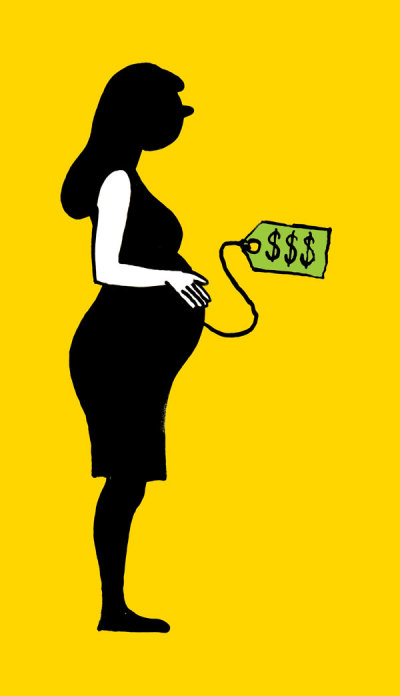Clergy, feminists blast New York’s commercial surrogacy bill as 'dangerous,' ‘gravely immoral’

Following an unsuccessful attempt to legalize commercial surrogacy last year, New York state has reintroduced legislation that would allow the practice, which is drawing criticism from religious leaders and feminist groups.
New York state Assembly Bill 1071 and its companion in the state Senate, Bill 2071, would lift prohibitions on surrogacy and allow for embryos created in a lab via in vitro fertilization — using sperm and eggs that might or might not be from the couple procuring surrogacy services — to be transferred to the womb of a surrogate. The surrogate mother would then, per legal contract, give up all rights to the child after it's born.
Some religious leaders say the bill poses a danger to women and benefits those who are financially well-off.
“The surrogacy legislation is designed mainly to benefit wealthy men who can afford tens of thousands of dollars to pay baby brokers, at the expense of low-income women,” said Kathleen M. Gallagher, director of pro-life activities for the New York State Catholic Conference, according to Catholic News Agency.
The Catholic Church has decried surrogacy and artificial reproductive technologies that involve the "dissociation of husband and wife, by the intrusion of a person other than the couple (donation of sperm or ovum, surrogate uterus)," describing the practices as "gravely immoral" in its Catechism.
The Catholic Church is not alone in its opposition to the New York bill.
"No New Yorker should regard putting women’s bodies up for sale as a civil rights advance, no matter whom it allegedly benefits. Women aren’t property," Natasha Chart, board chair of the radical feminist group Women's Liberation Front, told The Christian Post in an email on Friday.
"The draconian contracts commonly used by the commercial surrogacy industry, the infliction of emotional trauma on birth mothers by controlling or dissatisfied clients, and the routine abandonment of children who aren’t what the clients were expecting, are all reasons why a growing number developing nations have forbidden this type of commercial exploitation of their female citizens."
She added: "When countries like India have banned this after many years of trouble and hard experience with wealthy surrogacy tourists, we should be extremely suspicious of the motives of alleged progressives trying to introduce it as a civil rights advance in New York. Whose rights are they concerned with, I wonder? Because it doesn’t sound like they were thinking about the women and children involved at all."
The renewed push in New York comes after a failed attempt to scrap existing laws on surrogacy in 2019. The legislation passed in the state Senate but was never brought up for a vote in the Assembly.
Surrogacy is increasingly being seen as falling under the LGBT rights umbrella, but the money factor has troubled some progressive lawmakers who might otherwise be supportive.
“It is pregnancy for a fee,” Deborah Glick, a New York Democratic assemblywoman and the first openly gay member of the state Legislature, told The New York Times in June. “And I find that commodification of women troubling.”
The debate has pitted some feminists against progressives and LGBT activists in the state.
A letter sent to New York Governor Andrew Cuomo, which was signed by feminist icon Gloria Steinem and a coalition of other women's rights advocates, asserted that women would be harmed by the legislation.
"Our opposition to this bill emerges from our conviction that the legalization of commercial surrogacy contracts in New York state will undermine women’s control over their bodies, thwart women’s reproductive rights, render women vulnerable to reproductive trafficking and exploitation, and further subordinate and harm women, especially those who are economically disadvantaged, in our state," the letter sent last June states.





















